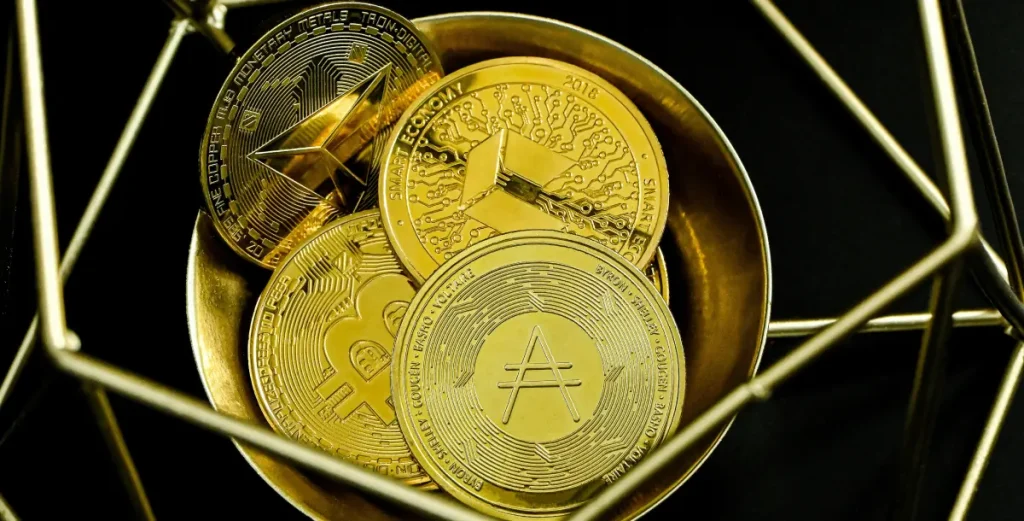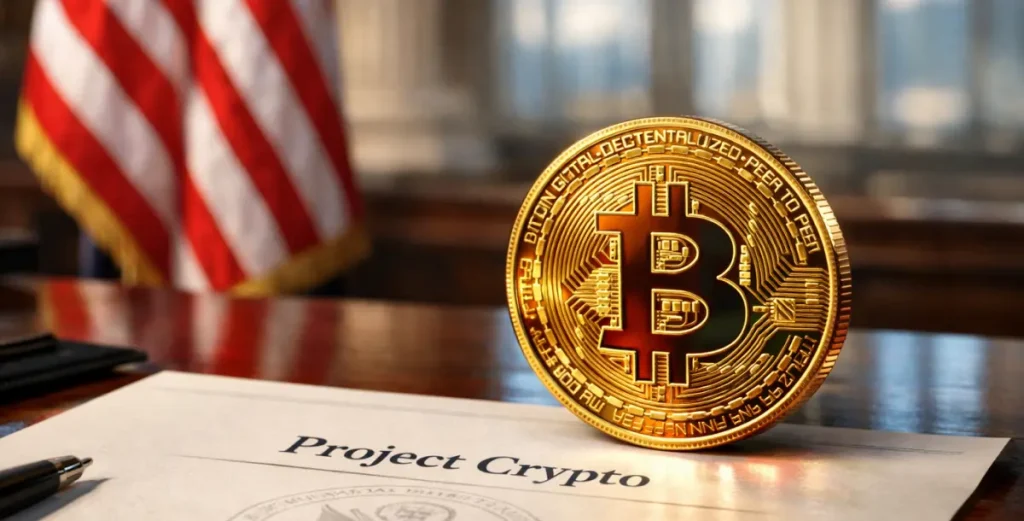Creating a crypto token used to be complex and costly. Today, startups can do it with fewer resources and the right tools. Blockchain advancements have lowered the barriers, making token creation accessible to small teams and entrepreneurs.
Whether you’re a solo founder exploring Web3 opportunities or part of a small team looking to launch tokens quickly, this guide walks you through everything you need to know about bringing your token project to life. From choosing the right blockchain to navigating legal requirements, we’ll cover the practical steps that make token creation accessible to startups of all sizes.
What Does It Mean to Launch a Token? (And Why It’s Different from Building a Coin)
Understanding the difference between tokens and coins is crucial for your project’s success. Crypto coins are native currencies of their own blockchain networks—think Bitcoin on the Bitcoin network or Ether on Ethereum. Creating a coin means building an entire blockchain from scratch, which requires significant technical resources and time.
Crypto tokens, on the other hand, are digital assets built on existing blockchains. They leverage established infrastructure like Ethereum’s network, making them far simpler and faster to create. This is why launching a token has become the preferred path for most startups entering the crypto space.
But why launch a token? From a retail perspective, tokens can represent access to services, rewards, or even ownership in a project. They create new ways for individuals to engage with brands and communities.
For decision-makers, tokens are a versatile tool to raise funds, incentivize users, and build loyalty. They enable businesses to create ecosystems where users are directly invested in the project’s success. For instance, crowdfunding through an Initial Coin Offering (ICO), like how Binance Coin (BNB) raised $15 million, can be transformative. They also power gamification by rewarding user activity with valuable assets. In decentralized economies, tokens can represent everything from a vote to a stake in the project, offering significant possibilities.
The token launch mechanism refers to how your digital asset goes from concept to public availability. This includes everything from smart contract deployment to initial distribution strategies. What makes launching tokens particularly exciting is that you can focus on building utility and community rather than wrestling with blockchain infrastructure.
Choosing the Right Blockchain: Where Should You Launch?
Once you’ve decided to launch a token, the next big question is: What’s the right blockchain for your project? The answer depends on your specific goals and the utility you want your token to provide.
Are you launching a token to enable new utilities like access to services, rewards, or governance? Or are you exploring tokenization to represent real-world assets like real estate, art, or intellectual property? Each use case comes with unique requirements, and choosing the right blockchain is critical to your success.
Here are some of the top blockchain contenders and what they’re best suited for:
Ethereum
Ethereum is the gold standard for token creation, offering the largest ecosystem and most established infrastructure. Its robust smart contract capabilities make it ideal for launching tokens with diverse utilities, such as governance, staking, or access to decentralized applications (dApps).
The Ethereum network also benefits from widespread adoption, meaning your token can easily integrate with wallets, exchanges, and other blockchain tools. However, keep in mind that gas fees can be expensive during periods of high network congestion, which may impact smaller-scale projects.
Solana
Solana is known for its speed and low transaction costs, making it an attractive choice for launching tokens. Its high throughput and scalability are ideal for projects targeting retail users who prioritize fast, affordable transactions. Solana is particularly popular for gaming, NFTs, and DeFi projects that require quick interactions and minimal fees.
BNB Chain (formerly Binance Smart Chain)
BNB Chain (formerly Binance Smart Chain) is a go-to option for projects looking to tap into Binance’s extensive ecosystem. It offers low fees, fast transactions, and seamless integration with Binance’s tools and services, making it a strong choice for DeFi, tokenized assets, and community-driven projects.
Polygon
An Ethereum Layer-2 solution providing near-zero fees while maintaining compatibility with Ethereum’s ecosystem.
Each platform has trade-offs in speed, cost, and community support. Solana excels for high-frequency applications, while Ethereum offers the most robust developer tools and institutional adoption. Consider your target audience and use case when making this decision.
Step-by-Step: How to Create Your Own Token (Even in 15 Minutes)
Curious about how to create your own cryptocurrency in 15 minutes? Here’s the streamlined process:
1. Set Up Your Wallet
Install MetaMask (for Ethereum-based chains) or Phantom (for Solana) and fund it with the native cryptocurrency to pay for deployment fees.
2. Choose Your Creation Method
Before diving into the creation process, think about your token’s properties and tokenomics. What will your token represent? How will it be distributed, and what utility will it provide? These decisions will shape your project’s success.
- No-code platforms like Smithii, LaunchLab, or Best Wallet App make it easy to create tokens without technical expertise. These are great for straightforward projects with standard features.
- Smart contract templates from OpenZeppelin offer more customization for those who want to tailor their token’s functionality, such as governance, staking, or unique utilities.
3. Define Your Token Parameters
- Name and symbol (e.g., “StartupToken” with symbol “START”)
- Total supply
- Decimal places (typically 18 for ERC-20 tokens)
- Whether additional tokens can be minted later
4. Deploy Your Contract
Connect your wallet to your chosen platform, fill in the details, and deploy. The entire process can take just minutes once you have everything prepared.
5. Verify and Test
Verify your contract on blockchain explorers like Etherscan and conduct test transactions to ensure everything works properly.
Legal & Compliance: Is It Illegal to Launch a Token?
Launching a token isn’t inherently illegal, but compliance is essential to avoid legal pitfalls. To ensure your project meets regulatory requirements, here are the key areas to focus on:
Token Classification
Determine whether your token is classified as a security. Tokens marketed as investment opportunities with an expectation of profit, especially when tied to the efforts of a third party, are likely to fall under securities regulations. Utility tokens, which provide access to a product or service, are less likely to be classified as securities.
Regulatory Compliance
Adhere to Know Your Customer (KYC) and Anti-Money Laundering (AML) requirements, particularly if your token sale involves public fundraising. These measures ensure transparency and help prevent fraud.
Jurisdiction Laws
Choose a jurisdiction with clear and crypto-friendly regulations, such as Switzerland, Estonia, or Singapore. These regions often provide more straightforward compliance pathways for blockchain projects.
Documentation & Transparency
Prepare comprehensive legal documentation, including terms of service, privacy policies, and disclaimers about the risks of holding your token. Transparent communication with your audience builds trust and reduces legal risks.
By addressing these considerations and consulting legal experts early, you can ensure your token launch is compliant and positioned for success.
Key Costs, Risks, and Mistakes to Avoid When Launching a Token
One of the key areas to consider when launching a token is the resources you have available. Launching a token can cost anywhere from a few hundred dollars for a basic setup to tens of thousands for a fully-featured project that includes legal compliance, audits, and marketing.
Here’s a breakdown of the typical costs involved:
- Blockchain Deployment Fees: $50–$500, depending on the blockchain you choose.
- Smart Contract Audit: $5,000–$15,000. This is highly recommended for serious projects to ensure security and trustworthiness.
- Legal Consultation: $10,000–$50,000. Compliance with regulations is critical to avoid legal issues.
- Marketing and Community Building: $5,000–$100,000+. Building awareness and a loyal community is essential for long-term success.
While the technical process of launching a token has become more accessible, success requires careful planning and execution. Here are some common risks and mistakes to avoid:
- Launching Without a Clear Use Case or Community: A token without a defined purpose or a supportive community is unlikely to gain traction. Define your token’s utility and build a strong community before launch.
- Ignoring Legal Requirements: Failing to comply with regulations can lead to fines, legal action, or even the shutdown of your project. Always consult legal experts to ensure compliance.
- Poor Tokenomics Design: Misaligned tokenomics can lead to issues like incentivizing users to dump tokens, which can harm your project’s value and reputation. Design a sustainable economic model.
- Inadequate Security Measures: Security breaches can destroy trust in your project. Invest in smart contract audits and implement robust security protocols.
- Underestimating the Importance of Liquidity: Without sufficient liquidity, your token may struggle to gain adoption or maintain value. Plan for liquidity provision as part of your launch strategy.
Understanding these costs, risks, and common pitfalls is essential for preparing a successful token launch. Careful planning, allocating resources wisely, and seeking expert guidance will help you avoid these mistakes and build a sustainable project with long-term potential.
Launch Strategies: From Private Sale to Public Launch
When planning a token launch, it’s essential to first consider why you’re distributing tokens and the purpose they serve. Token distribution isn’t always necessary—some projects may use tokens internally without public distribution. For example:
- Private Use Cases: A private bank operating on a permissioned blockchain may use tokens solely for internal transactions or settlements.
- Tokenized Real-World Assets (RWA): Large firms may tokenize assets like real estate or commodities to raise funds or improve liquidity, distributing tokens only to select investors.
If your goal is to distribute tokens, the method you choose will depend on your project’s objectives, target audience, and regulatory considerations. Here are some common distribution strategies:
Private Sales
Offer tokens to early investors or strategic partners before the public launch. This method often includes discounted prices and vesting periods to ensure long-term commitment.
Initial DEX Offerings (IDO)
Launch tokens directly on decentralized exchanges, allowing immediate trading while maintaining decentralization. This method is popular for projects looking to engage with the DeFi community.
Fair Launches
Distribute tokens without preferential access, often through mechanisms like liquidity mining or airdrops. This approach ensures equal opportunity for all participants and helps build a strong, decentralized community.
When a token is launched, it becomes publicly tradable, and its value is shaped through market forces. Key factors like utility, community support, and broader market conditions heavily influence its price and adoption.
If you’re looking to purchase tokens before they launch, this often involves joining whitelists, private sales, or presale events organized by the project team, which may require meeting specific criteria like KYC verification or active community participation. At the same time, aligning your distribution strategy with your project’s objectives and target audience is essential for creating a meaningful impact and ensuring a successful token launch with long-term growth potential.
What Makes a Token Successful (Beyond the Tech)
The success of a token goes far beyond its technical implementation. While robust technology is essential, other factors play a critical role in determining whether a token thrives in the long term.
A strong community is the backbone of any successful token. Building an engaged and loyal community before the launch creates natural demand and a group of evangelists who will advocate for your project. A vibrant community not only drives adoption but also fosters trust and credibility, which are essential for sustaining momentum in the competitive crypto space.
Tokens with clear utility tend to perform better than those that rely solely on speculation. A token should have a well-defined purpose and real-world use cases that provide tangible value to its holders. Whether it’s enabling access to a platform, facilitating transactions, or representing ownership of an asset, utility ensures that the token remains relevant and valuable over time.
A transparent team is another key factor in building trust and credibility. When team members are public, accessible, and have relevant experience, it reassures investors and users that the project is legitimate and well-managed. Transparency also helps mitigate concerns about scams or rug pulls, which are unfortunately common in the crypto space.
Strategic partnerships can significantly boost a token’s success by providing legitimacy and access to a broader user base. Collaborations with established projects, platforms, or organizations can open doors to new opportunities, enhance the token’s utility, and increase its visibility within the industry. These partnerships often serve as a vote of confidence in the project’s potential.
Finally, effective marketing is crucial for generating buzz and attracting attention to your token. Successful projects leverage social media campaigns, influencer partnerships, and PR outreach to build excitement and awareness. Highlighting the unique value proposition of your token and engaging with the crypto community can create the momentum needed for a strong launch and sustained interest.
Focusing on these key elements: community, utility, transparency, partnerships, and marketing, can significantly enhance your token’s chances of success. A well-rounded approach that prioritizes trust, engagement, and real-world value will help your project stand out in a competitive and rapidly evolving market.
Ready to Launch Your Token Project?
Creating your own token has never been more accessible, but success still requires careful planning and execution. The days of needing a massive development team are behind us, but you still need to nail the fundamentals: legal compliance, solid tokenomics, genuine utility, and community building.
Whether you choose the quick deployment route or build something more complex, remember that launching is just the beginning. The most successful token projects focus as much on post-launch community growth and utility development as they do on the initial technical implementation.
If you’re ready to launch your token but want expert guidance through the process, consider partnering with a company like ChainUp, which specializes in navigating both the technical and strategic aspects of tokenization, from issuance to management. Note that the Web3 space moves fast, but with the right approach, your startup can build something meaningful without the traditional barriers that once made token creation exclusive to the biggest players.




